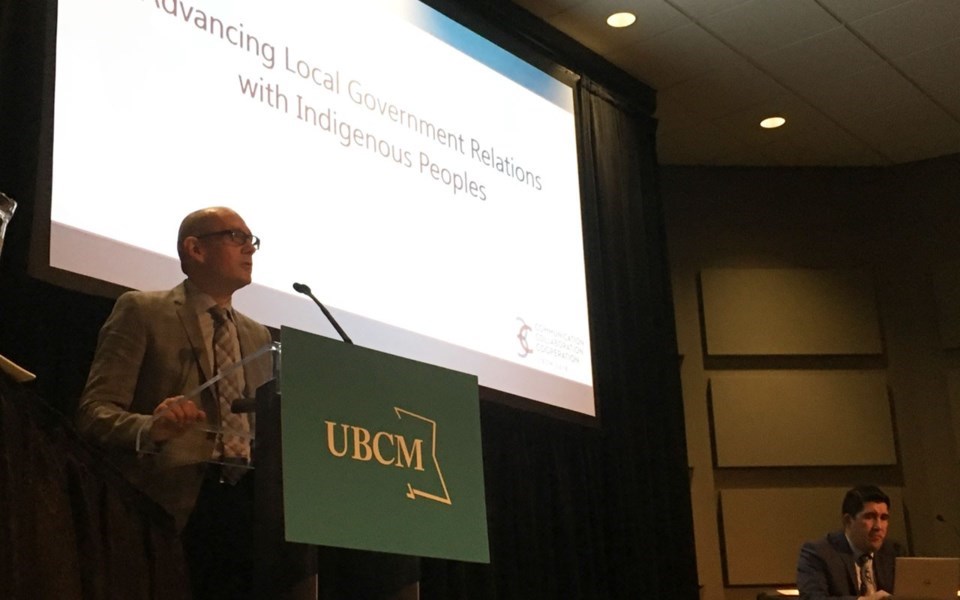After two years of virtual conventions, delegates from nearly 200 B.C. local governments will converge on Whistler from Sept. 12 to 16 for the first in-person Union of BC Municipalities Convention (UBCM) since 2019.
As with every UBCM, delegates will debate a wide-range of policy proposals to advocate for with the provincial government—but resolutions related to health-care initiatives are front and centre this year, with nearly two dozen up for debate.
While the Resort Municipality of Whistler itself isn’t putting forward any resolutions this year, Mayor Jack Crompton said it was great to welcome the convention back to the Whistler Conference Centre.
“It’s wonderful to have elected people from around the province in our community,” Crompton said. “It’s a real contribution to our economy, but it’s also an opportunity to learn from what’s working in other communities.”
The UBCM convention also serves as an opportunity for municipal politicians to engage with their provincial counterparts.
Whistler, for example, has arranged meetings with the provincial ministers of housing, finance, childcare and tourism to develop stronger partnerships and dialogue with the ministries and advocate for the municipality’s pertinent issues.
“We approach these conversations holistically, looking at how we can work together to develop stronger partnerships and to support the needs of the resort, the workers who live in the resort, and British Columbia’s tourism economy more broadly,” said Crompton.
Within the Squamish-Lillooet Regional District (SLRD), member municipalities have made several motions for this year’s convention, highlighting some of the region’s priorities.
Sea to Sky priorities include emergency management and wildfire prevention reform; advocating for paid maternity and parental leave for all local government elected officials; reducing food waste; and giving local governments a legislated avenue for providing input before cutting permits are approved.
The Village of Pemberton is floating three resolutions: changing the model for reimbursement for highway rescue services; improving wait times for Crown land applications; and changing the funding model for policing in communities passing the 5,000-resident mark.
The policing funding model is particularly concerning for Pemberton Mayor Mike Richman, as Pemberton is on track to pass 5,000 people within the next decade if growth rates continue at current levels.
“The bottom line is, when a town exceeds the population of 5,000, their policing costs go up huge. It’s hard to put the exact number on it because if you read the formula, basically 70 per cent of policing costs in a town like ours are paid by the province,” Richman said.
“So what we’re asking for in that resolution is that the policing cost model be looked at, and that it be approached as a more transitional model—so instead of taking that huge hike at 5,000, perhaps it takes several smaller hikes as the population grows.”
A similar shift occurred recently in the Town of Oliver, which passed the 5,000 mark in the last census. To cover the increased cost, Oliver had to raise taxes by nine per cent.
Additionally, Richman noted that small communities like Pemberton tend to have to cover the costs of dealing with highway accidents, which is why Pemberton put forward a resolution advocating for the province to cover the cost of highway rescue services for small communities.
As for the Crown land applications, Richman voiced concern about the time it takes for municipalities to acquire Crown land to build more affordable housing and needed municipal infrastructure.
“The resolution is simply stating that the process to do that is too slow and slows down our progress,” he said. “So again, if you’re looking at a key infrastructure or affordable housing project, and it takes three years to secure the land, it’s hard to plan like that. So the resolution is around speeding up the process for applications.”
The Village of Pemberton will meet with ministers regarding policing and diking, and the SLRD has been granted two meetings with ministers.
Following precedent, Whistler councillor and SLRD board chair Jen Ford is likely set to become the next UBCM president at this year’s convention, after several years of rising through the union’s executive ranks.
Ford said she is enthusiastic about the convention returning to Whistler.
“It’s really nice because you feel like you’ve got everybody in one place, and you’re not losing people to other work and events outside of the convention. So it’s a really good convention. People love it, [and] love coming to Whistler,” Ford said.




